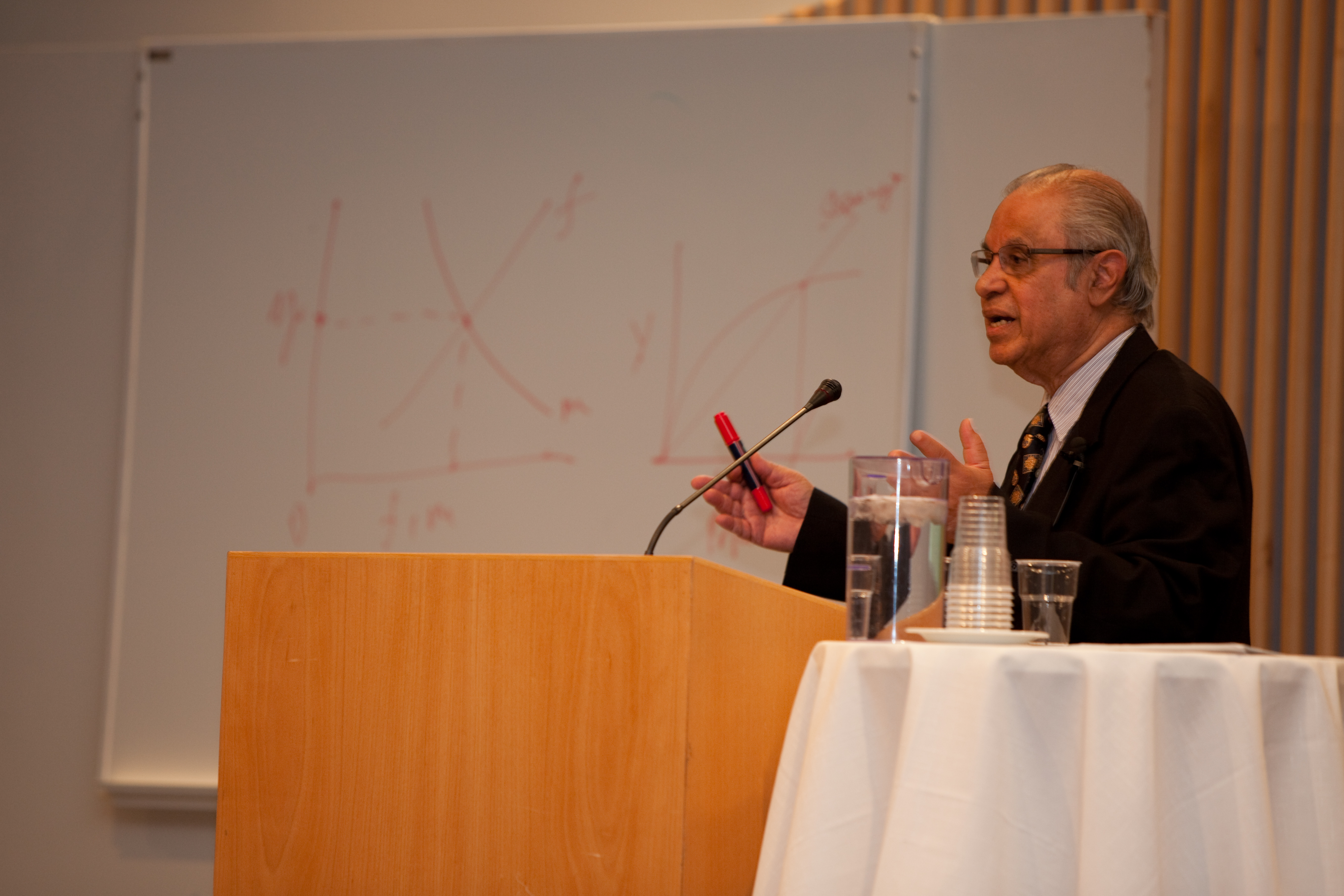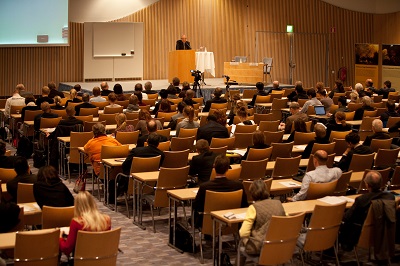
About
Photos - AL13Selection of images from the WIDER Annual Lecture 13.

The lecture will explore the theoretical and empirical links between international trade and economic development over a wide range of space and time, drawing on models and ideas based on his previous work and that of others. Special attention will be paid to such topics as the spice trade, the Silk Road, the 'triangular trade' between Europe, Africa and the New World, and the causes and consequences of the Industrial Revolution. Finally it will attempt to make some observations about the current state and future prospects of the world economy.

Ronald Findlay was born in Rangoon, Burma and educated at St. John’s Diocesan Boys High School and Rangoon University (BA, 1954), where he was a Tutor in Economics from 1954-57 before going to MIT on a Ford Foundation Fellowship (PhD, 1960). After returning to Burma he was a Lecturer and then Research Professor of Economics in Rangoon University. He came to the US in 1969 to teach at Columbia University, where he is the Ragnar Nurkse Professor of Economics.
He is the author of Trade and Specialization (Penguin 1970); International Trade and Development Theory (Columbia University Press, 1973); Trade, Development and Political Economy: Selected Essays of Ronald Findlay (Edward Elgar, 1993); Factor Proportions, Trade and Growth (MIT Press, 1995), based on the Ohlin Lectures delivered in Stockholm in 1991; and most recently (with Kevin H. O’Rourke) of Power and Plenty: Trade, War and the World Economy in the Second Millennium (Princeton University Press, 2007). An outline of the argument of this book was published as: “The Evolution of the World Economy 1000-2000AD” in Wider Angle, No.1/2008. He has been awarded honorary doctorates from the New University of Lisbon and the Stockholm School of Economics.
The lecture will explore the theoretical and empirical links between international trade and economic development over a wide range of space and time, drawing on models and ideas based on his previous work and that of others. Special attention will...